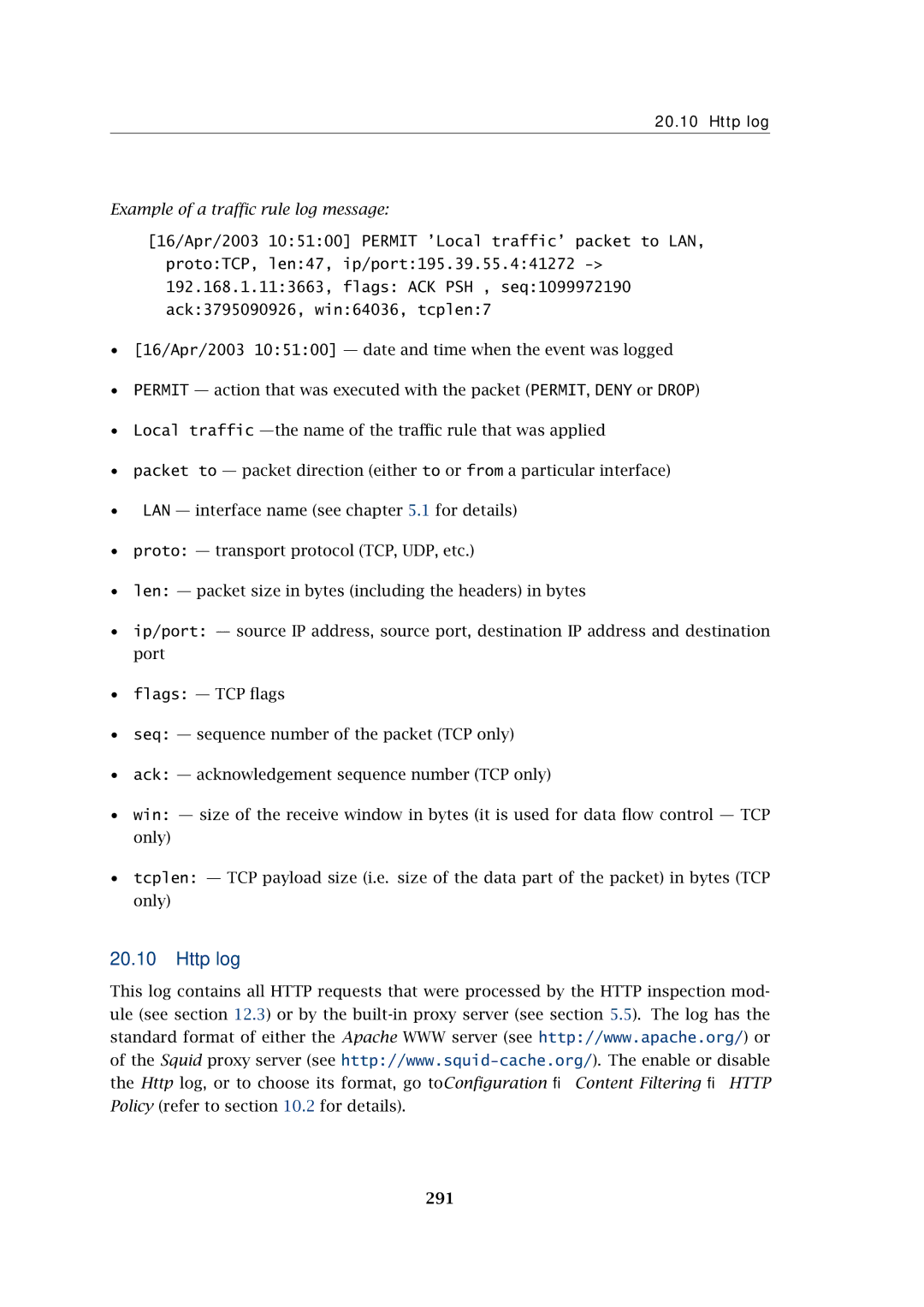20.10 Http log
Example of a traffic rule log message:
[16/Apr/2003 10:51:00] PERMIT ’Local traffic’ packet to LAN, proto:TCP, len:47, ip/port:195.39.55.4:41272
•[16/Apr/2003 10:51:00] — date and time when the event was logged
•PERMIT — action that was executed with the packet (PERMIT, DENY or DROP)
•Local traffic
•packet to — packet direction (either to or from a particular interface)
•LAN — interface name (see chapter 5.1 for details)
•proto: — transport protocol (TCP, UDP, etc.)
•len: — packet size in bytes (including the headers) in bytes
•ip/port: — source IP address, source port, destination IP address and destination port
•flags: — TCP flags
•seq: — sequence number of the packet (TCP only)
•ack: — acknowledgement sequence number (TCP only)
•win: — size of the receive window in bytes (it is used for data flow control — TCP only)
•tcplen: — TCP payload size (i.e. size of the data part of the packet) in bytes (TCP only)
20.10 Http log
This log contains all HTTP requests that were processed by the HTTP inspection mod- ule (see section 12.3) or by the
